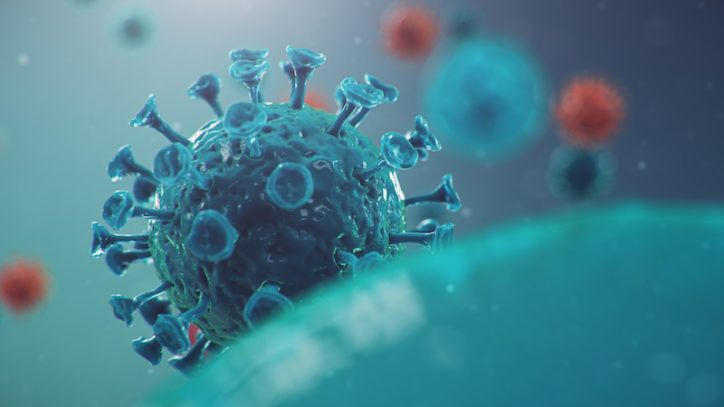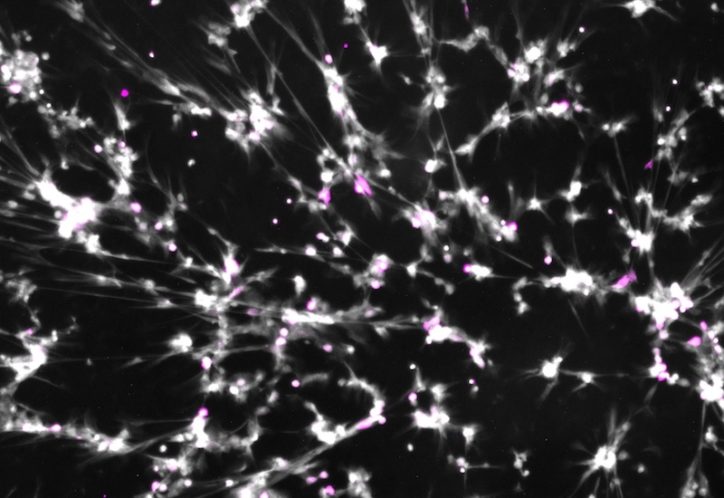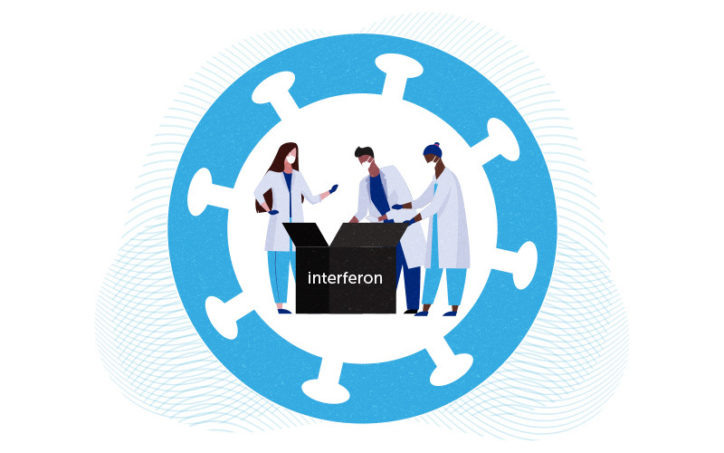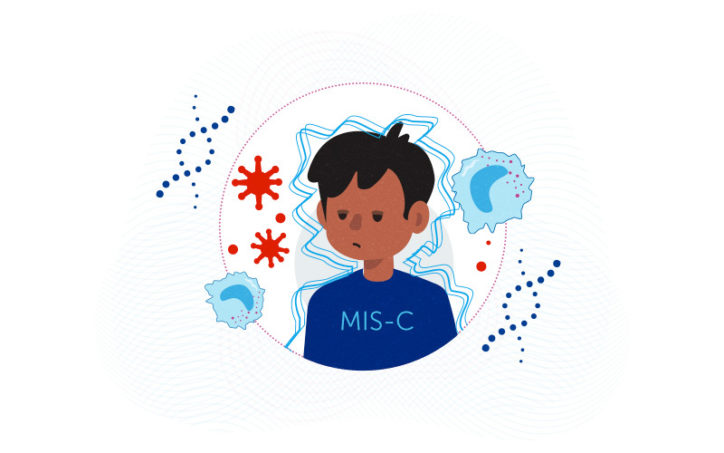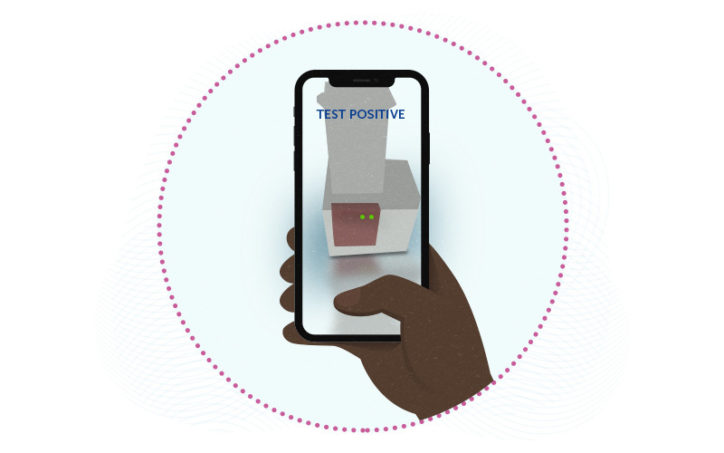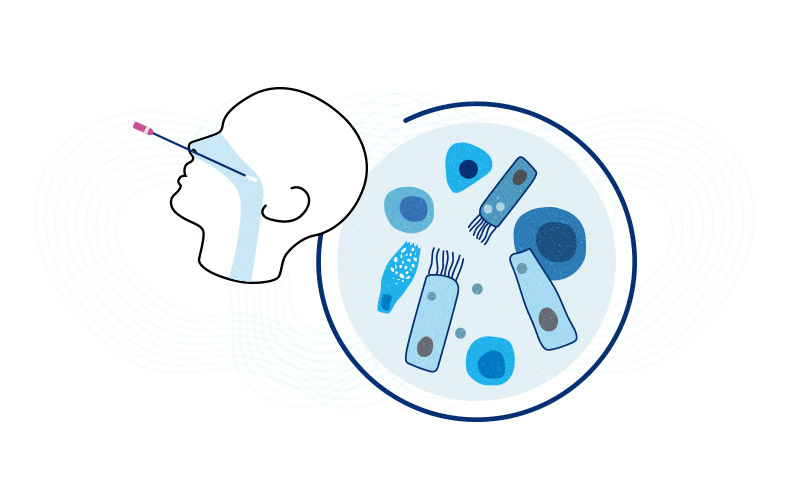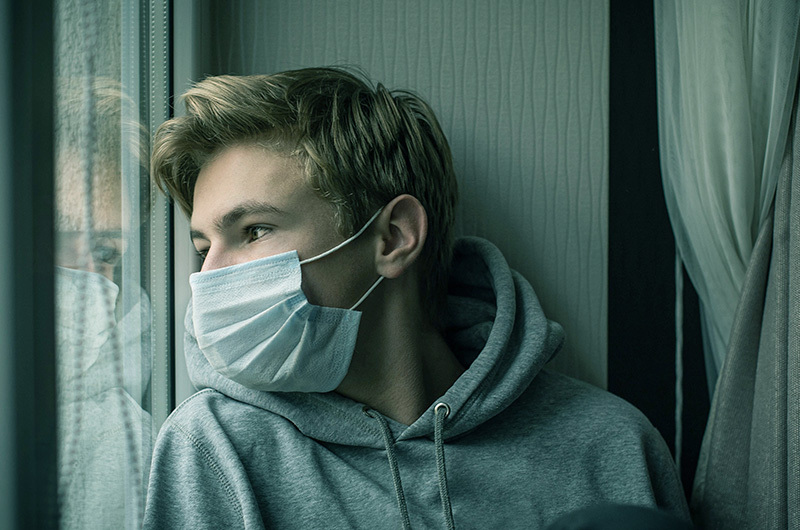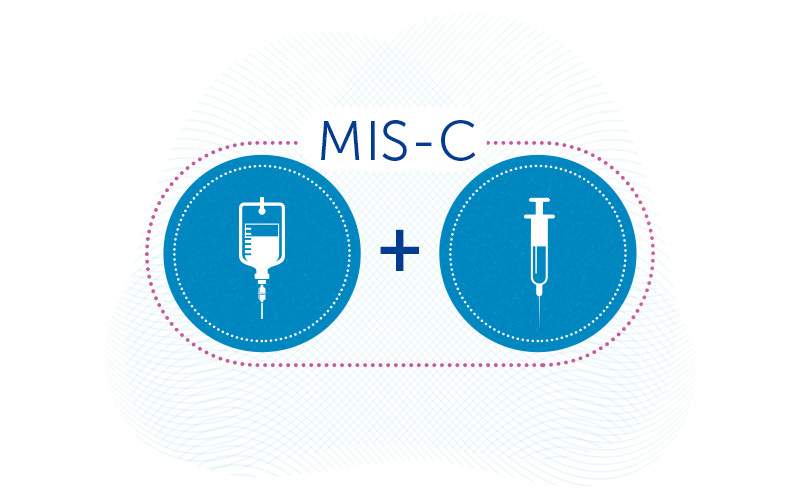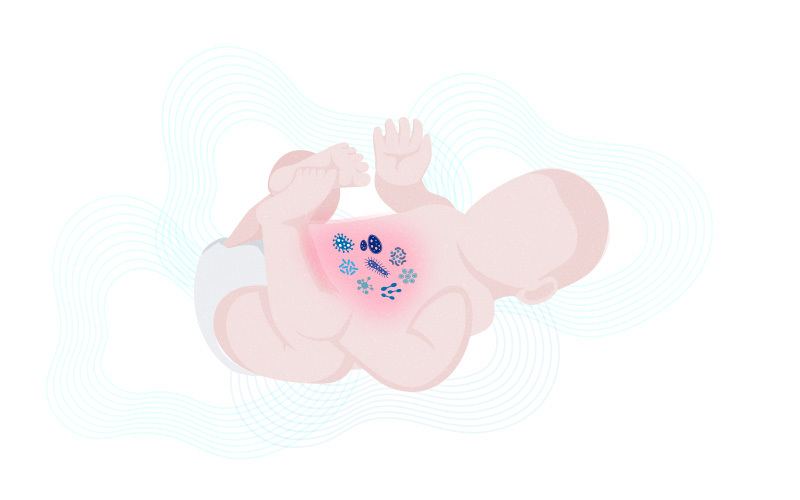Archive for infectious diseases
What makes the Delta variant of COVID-19 so contagious?
The Delta variant of SARS-CoV-2 has swept the planet, becoming the dominant variant within just a few months. A new study from Boston Children’s Hospital, published in Science, explains why Delta spreads so easily and infects people so quickly. It also suggests a more targeted strategy for developing next-generation COVID-19 vaccines and treatments. Last spring, ... Read More about What makes the Delta variant of COVID-19 so contagious?
New research NETs a fresh angle for treating severe inflammation
As we’ve seen during the COVID-19 pandemic, serious infections sometimes trigger an excessive inflammatory reaction that does as much harm — or more — than the infection itself. New research at Boston Children’s Hospital and Brigham and Women’s Hospital suggests a potential way to block this hyperinflammation response by repurposing or modifying an existing drug. ... Read More about New research NETs a fresh angle for treating severe inflammation
Unpacking the body’s interferon response to COVID-19
Interferons are potent natural antivirals, rallying other parts of the immune system to defend against viruses. Some clinical trials have tested interferons as a treatment for COVID-19, but results have been mixed. And the science has been unclear about whether interferons are helpful or harmful. Key takeawayAn early, protective interferon response in the upper respiratory ... Read More about Unpacking the body’s interferon response to COVID-19
Why do some children get MIS-C after COVID-19? Some early clues
Several months into the COVID-19 pandemic, a small number of children began to develop a cluster of mysterious symptoms. These included rashes, red eyes, gastrointestinal symptoms and, most worrisome, heart problems. Why does this serious illness, now known as multisystem inflammatory disorder in children (MIS-C), strike some previously healthy children? And who is most at ... Read More about Why do some children get MIS-C after COVID-19? Some early clues
Rapid saliva test detects COVID-19 variants, at home or point of care
COVID-19 tests are now widely available, including FDA-approved tests like BinaxNOW that people can do at home. But none of the home tests — or any hospital test — can distinguish between specific SARS-CoV-2 variants. Detecting and tracking variants, essential for public health efforts, requires complete nucleic acid sequencing of the virus. Currently, only specialized ... Read More about Rapid saliva test detects COVID-19 variants, at home or point of care
Tagged: coronavirus, diagnostics, infectious diseases
Why do some people get severe COVID-19? The nose may know
The body’s first encounter with SARS-CoV-2, the virus behind COVID-19, happens in the nose and throat, or nasopharynx. A new study in the journal Cell suggests that the first responses in this battleground help determine who will develop severe disease and who will get through with mild or no illness. Building on work published last ... Read More about Why do some people get severe COVID-19? The nose may know
Boston Children’s post-COVID clinic cares for those with lasting symptoms
One teenager complains of chronic muscle pain. Another child feels too exhausted to go to school or play sports. Still another can’t shake the feeling of “brain fog” — memory and cognition challenges. Despite their different symptoms, all three patients have one thing in common: They’ve all had COVID-19, and they’re all experiencing lingering symptoms ... Read More about Boston Children’s post-COVID clinic cares for those with lasting symptoms
Tagged: coronavirus, headaches, infectious diseases, pain
Children with severe MIS-C do better with IVIG and steroids as initial therapy
When children started getting sick with multisystem inflammatory syndrome (MIS-C) in the wake of COVID-19, clinicians largely turned to two treatments. Many used immunoglobulin (IVIG) because of MIS-C’s similarities with Kawasaki disease. And many used steroids such as methylprednisolone because of MIS-C’s inflammatory features. Key takeawayIn this large, rigorous national study, initial treatment of MIS-C ... Read More about Children with severe MIS-C do better with IVIG and steroids as initial therapy
Tagged: coronavirus, immunotherapy, infectious diseases, mis-c, research
Celebrating remarkable Asian Americans and Pacific Islanders
Boston Children’s Hospital thrives, thanks in part to the contributions of its Asian American and Pacific Islander staff and clinicians. Whether developing innovative treatments for chronic disease, treating children with complex conditions, or organizing online events to bring remote teams together during the pandemic, our Asian American and Pacific Islander team members are central to ... Read More about Celebrating remarkable Asian Americans and Pacific Islanders
Piecing together the preterm infant microbiome
The human microbiome — the collection of microbes living in the gut — is now recognized as an important contributor to health and disease. The environment, the host, and microbe-microbe interactions are all likely to shape the microbiome’s dynamics, but the unique roles of each are not well understood. Now, a Boston Children’s Hospital infectious ... Read More about Piecing together the preterm infant microbiome


